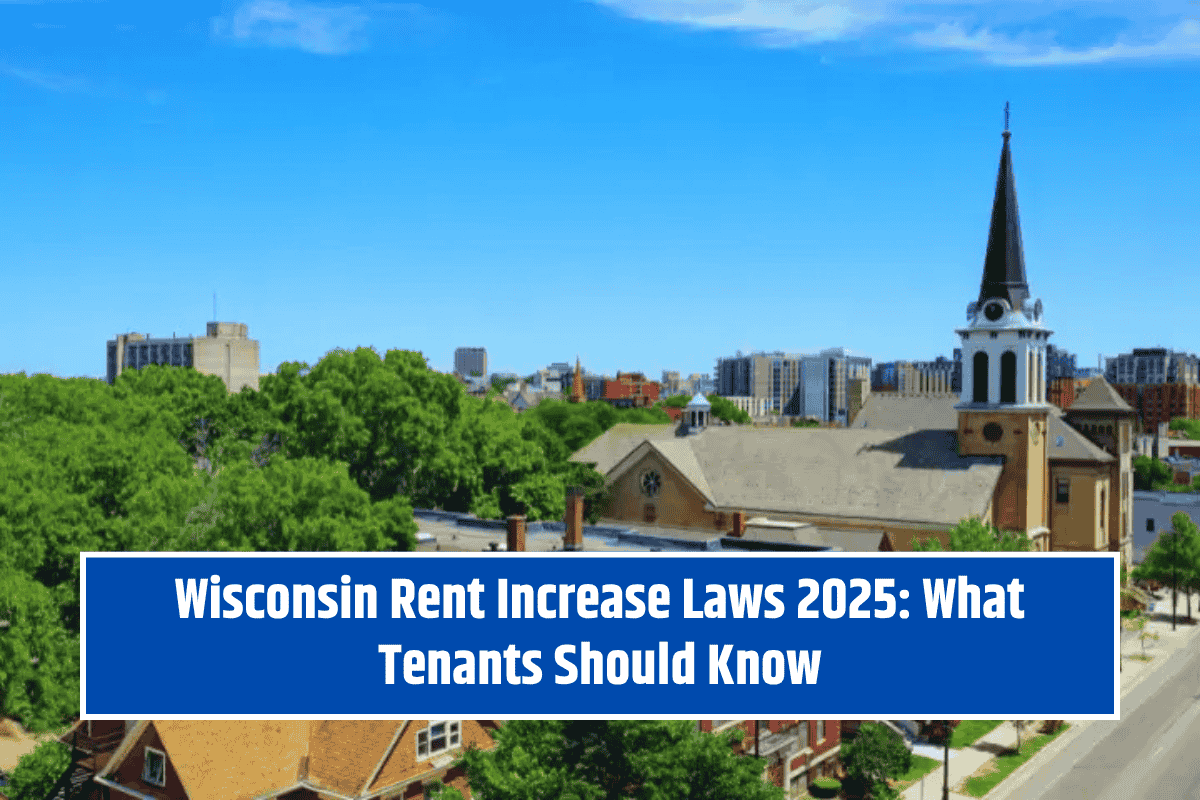Renting a home or apartment in Wisconsin can be challenging, especially with rising housing costs. Unlike many other states, Wisconsin does not have statewide rent control laws, meaning landlords can raise rents based on market conditions or their own judgment. If you’re renting in Wisconsin, it’s crucial to understand your rights and your landlord’s responsibilities to avoid unexpected rent hikes.
No Statewide Rent Caps in Wisconsin
In most parts of Wisconsin, there are no legal limits on how much landlords can increase rent. As long as they provide the required notice, landlords can raise rent by any amount. This gives landlords the flexibility to adjust rent based on market demand, inflation, or other factors. For renters, this means that unless you’re in a government-subsidized unit, rent increases can happen at any time.
When Can a Landlord Raise Rent?
1. End of a Lease Term
When your fixed-term lease (like a 6-month or 1-year lease) ends, your landlord can raise the rent. They must provide 28 days’ written notice before the lease ends. If you agree to stay, the new rent will apply. If you don’t want to stay, you can move out.
2. During a Month-to-Month Agreement
If you’re renting month-to-month, the landlord can increase the rent at any time, but they must provide at least 28 days’ written notice. There’s no limit on how often or how much the rent can increase, as long as proper notice is given.
3. During a Fixed-Term Lease
A landlord cannot raise the rent during the term of a fixed lease unless the lease agreement specifically allows for increases. If the lease doesn’t mention rent increases, the rent amount remains fixed until the lease term ends.
Rent-Controlled and Subsidized Housing
Some housing units in Wisconsin are part of government programs like Section 8 or Low-Income Housing Tax Credit (LIHTC) programs. These programs set limits on how much rent can be charged, and landlords cannot increase the rent beyond what is allowed by the program. Rent increases in these units are typically tied to inflation or income guidelines and must be approved by the housing authority.
Local Ordinances: Are There Any Rent Caps?
Although there is no statewide rent control in Wisconsin, some cities have had local laws in place to limit rent increases. For example, Madison once had rules that capped rent increases at 5% plus the inflation rate, but these rules faced legal challenges and may not be active today. While rent controls are rare in Wisconsin, it shows that local governments can occasionally implement their own rules.
Required Notice for Rent Increases
The amount of notice a landlord must provide before increasing rent depends on the type of lease agreement:
- Month-to-Month Lease: The landlord must give at least 28 days’ written notice.
- Fixed-Term Lease: The landlord must notify tenants before the lease ends if they plan to raise the rent for the next term.
- Automatic Renewal Lease: If your lease automatically renews, the landlord must follow the notice period stated in the lease (usually 60 to 90 days).
The written notice should clearly state the new rent amount and when it will start.
Can a Landlord Raise Rent Just to Get Back at You?
No. Wisconsin law protects tenants from retaliatory rent increases. If your landlord raises the rent after you’ve complained about repairs, health violations, or participated in tenant organizing, it could be considered retaliatory and illegal. If you believe this is happening, you can file a complaint with the Wisconsin Department of Agriculture, Trade, and Consumer Protection (DATCP).
How Often Can Rent Be Increased?
There is no limit to how often a landlord can raise the rent, except during the term of a fixed lease. For instance, if you have a 1-year lease, your rent cannot change during that year unless the lease explicitly allows for it. In a month-to-month rental agreement, however, a landlord can increase the rent every month, as long as they give proper notice.
What Can You Do About a Large Rent Hike?
If your rent increases significantly, your options for action are limited, unless the increase is retaliatory or you live in a subsidized unit. Here’s what you can try:
1. Negotiate with Your Landlord:
If you’ve been a good tenant, your landlord may be open to negotiating the rent increase. It’s worth discussing a smaller increase if you feel the new rent is unaffordable.
2. Provide Proof of Financial Situation:
If you’re struggling to afford the increase, you can show proof of your financial situation, such as recent bills or income statements, to support your case.
3. Compare Rent Prices:
Research similar properties in your area and compare their rent prices. If your rent increase is higher than the average for similar units, you can use this information to negotiate a smaller increase.
4. Find a More Affordable Unit:
If negotiations fail and the rent increase becomes unaffordable, you may need to consider moving to a more affordable unit.
In Wisconsin, renters must be aware that there are no statewide rent control laws, and landlords have significant freedom to raise rents. While there are protections for tenants in certain situations, such as retaliation or subsidized housing, most renters have limited options when faced with large rent increases. It’s essential to carefully read your lease agreement, understand your rights, and be prepared to take action if you face unexpected rent hikes. Regular communication with your landlord and staying informed about your rights can help you navigate this challenging situation.












